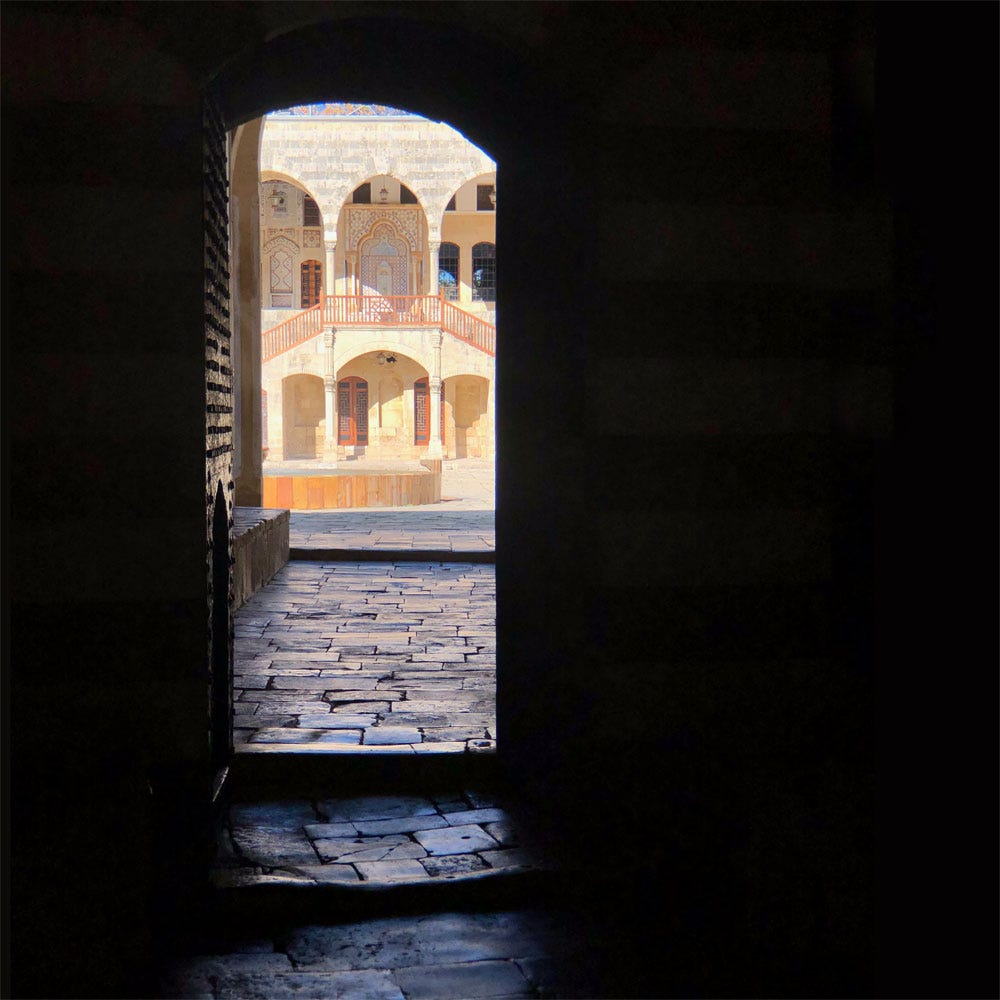Have a break from the hustle
Caravanserai, named after the Silk Road inns where weary travelers could rest and recover while caravans unloaded their treasures, is a meandering chronicle of my work relearning the forgotten artistic legacy of the medieval Islamic world, among other things.
I’m a visual artist from Lebanon with early Arabic calligraphy at the heart of my work, and a passion for natural art technology in general—the alchemy of making colours from the living world, and the transformative effect of these slow laborious practices. Recovering a lost past and discovering what nature can offer are two threads that feed into my creative work. I made two books on the topic — Inks & Paints of the Middle East and Wild Inks & Paints — and in the process discovered that I really enjoy sharing my findings and processes as I’m researching, and that others, far from finding it futile when the world is falling apart, find them valuable and enjoyable. Whatever the reason, these are the kind of topics I post about:
Testing and working with natural dyes, pigments and binders, as I stopped using store-bought colours for a variety of reasons.
Deepening my understanding of the early Arabic calligraphic tradition (the so-called Kufi family with its myriad styles), which I’ve been studying from primary sources and working with for 15 years — its principles and materiality, in scripture or architecture — with the occasional tearing into bad takes, because I can’t help it.
A close look at recipes from the inkmaking treatises I’m translating (either because that hasn’t been done, or it’s been done very badly, as I’m not shy to point out), and recreation of those inks and paints (often indispensable to pinpoint the author’s intentions).
Thoughts on art and being a certain kind of artist, holding the line through these very challenging times.
Beautiful or strange things I find in manuscripts or on structures I’m examining.
The odd preserve (mouneh) or foraging recipe, in the same spirit of self-sufficiency and waste-free living.
And other related matters as they come up. What I don’t do is collect links or lists of other people’s material: everything I post is my own investigation, my own findings and thoughts.
I regularly posted such threads on Twitter before the great exodus. Substack’s newsletter format seduced me: no character limit to work around, no algorithm to restrict the audience, and no app folks need to be on. There is no schedule to my posts: I share when there’s something interesting to share, and won’t fill your inbox pointlessly.
Why become a Paid subscriber?
At this point, it gives you fulla ccess to my archive, which is only available for 4 weeks to free subscribers. I don’t want to promise special paywalled content yet: I just want to share without being suppressed by algorithms, and to do so freely. A paid subscription from those who are able would support my research, which is entirely self-financed, and allow me to share more. Something more might develop in the future, but first let’s see how this space wants to grow. There are other ways of supporting me, such as buying my work or books, or boosting what I do in whatever way. All are greatly appreciated!
A more formal introduction:
Joumana Medlej is an artist, author and educator from Lebanon, based in East London since 2013. She’s best-known for her work with the Abbasid scripts, from which her visual language is derived, and also specialises in the art materials of that era. Having abandoned store-bought paints for the old ways of natural colour-making, she prepares her own supplies using medieval techniques, and forages for pigments and dyes wherever she finds herself. She's now drawing on her practitioner’s experience to translate medieval Arabic manuals into English and bring the voices of past masters to a general audience.
Joumana works out of her Hackney Wick studio and teaches Kufi calligraphy and related inkmaking with the Arab British Centre, the Prince’s School of Traditional Arts, and other institutions. She’s the author of two recent books on art technology: Inks & Paints of the Middle East and Wild Inks & Paints, and has produced critical translations of (so far) al-Razi’s Zinat al-Kataba and al-Qalalusi’s Tuhaf el-Khawass.



